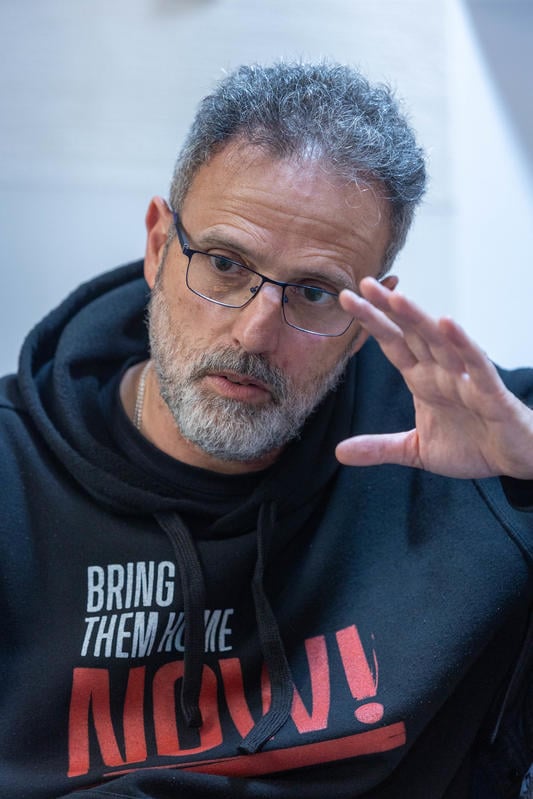
The president’s pressure even before his inauguration was what led to the hostage deal, Eitan Gonen wrote.
By Batya Jerenberg, World Israel News
Romi Gonen’s father gave full credit to U.S. President Donald Trump for his daughter’s freedom and asked him to continue his efforts so that all the remaining hostages will come home as well.
“The person who made seeing my daughter possible, after so many months of despair and failed negotiations, was President Donald Trump,” Eitan Gonen wrote in an op-ed in The New York Post that was published on Saturday.
“When he set a Jan. 20 deadline for the deal, it applied the necessary pressure, setting in motion the events that would bring Romi home,” he continued, adding that he would be “honored” to one day shake the president’s hand “and express my gratitude for his role in reuniting our family.”
Gonen then begged the president to continue his efforts for those still in the hands of Hamas and other terror groups in Gaza.
“For the 79 hostages still in captivity as of Friday, including dozens who aren’t even part of the current phase of negotiations, President Trump is their only hope,” he continued. “Only he could help other families experience the reunion I had. Only he can make the next stages of the deal possible.”
Romi was freed along with Doron Steinbrecher and Emily Damari on January 19 in the first of six scheduled weekly exchanges of hostages for Palestinian security prisoners. The negotiations had lasted for months before Trump’s November victory in the American elections.
The second stage of the negotiations, for the younger, live, male hostages, including IDF soldiers and foreign nationals, are beginning now in Qatar. Hamas is demanding that Israel free more terrorist prisoners and a complete withdrawal of the IDF from Gaza in return.
There is tremendous pressure from much of the Israeli public for a deal to be inked, especially after the release Saturday of hostages Ohad Ben Ami, Or Levy, and Eli Sharabi, who were emaciated, very pale, and shaky on their legs.
Many Jews and non-Jews had the same thoughts when seeing their gaunt frames, and President Trump expressed it clearly: “I watched the hostages come back today, and they looked like Holocaust survivors. They were in horrible condition” and looking “25 years older.”
While not going into detail about what he meant, he said repeatedly, “I don’t know how much longer we are going to take that,” and “at some point, we’re going to lose our patience.”
Holocaust survivors told The Post Sunday that the images of Ben Ami, Levy, and Sharabi brought them back to their horrific experiences in the concentration camps.
“It’s a sorry sight to look at, and even sorrier we have to discuss it,” said 97-year-old Aron Krell, who survived several brutal German camps. “It brings back the memories you try to forget, but you can’t forget.”
“When I saw their pictures coming out of captivity, they looked so emaciated and so sick,” he said. “And the world doesn’t care. I can’t understand — where is the outrage?”
Another nonagenarian survivor who spoke to the New York paper, Lucy Lipiner, wrote on X, ““The horrible images of the hostages pale and starved that were released yesterday brought me back to a very dark time in my life.”
“I saw almost skeletal men walking,” she added. “The worst thing about them was the depression that was written on their faces – the hollowed cheeks, sunken-in faces… can you imagine this emotional torture, on top of physical torture?
“The three men look like they came out from Auschwitz.”
The post Gaza hostage’s father credits Trump with daughter’s freedom appeared first on World Israel News.